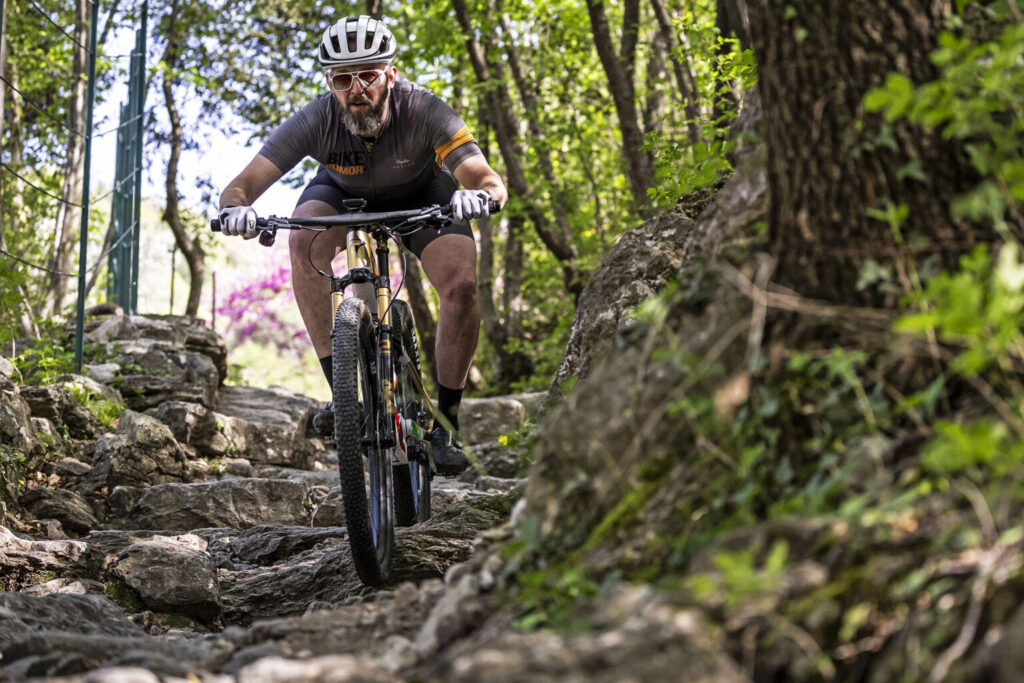
I’ll try to keep this one short and sweet heading into the weekend, but we had the exclusive opportunity for a first test of the wild new reverse arch FOX 32 Step Cast XC fork. Although it almost looks smaller than ever without seeing a conventional fork arch up front, this is undeniably a highly capable cross-country fork. Combining a new level of stiffness with an almost silly amount of apparent weight loss vs. the already light original 32 SC, this new fork will be a killer option for ultralight hardtail or short-travel full-suspension XC bikes!
MY 2025 Fox 32 Step Cast XC fork: First Rides Review
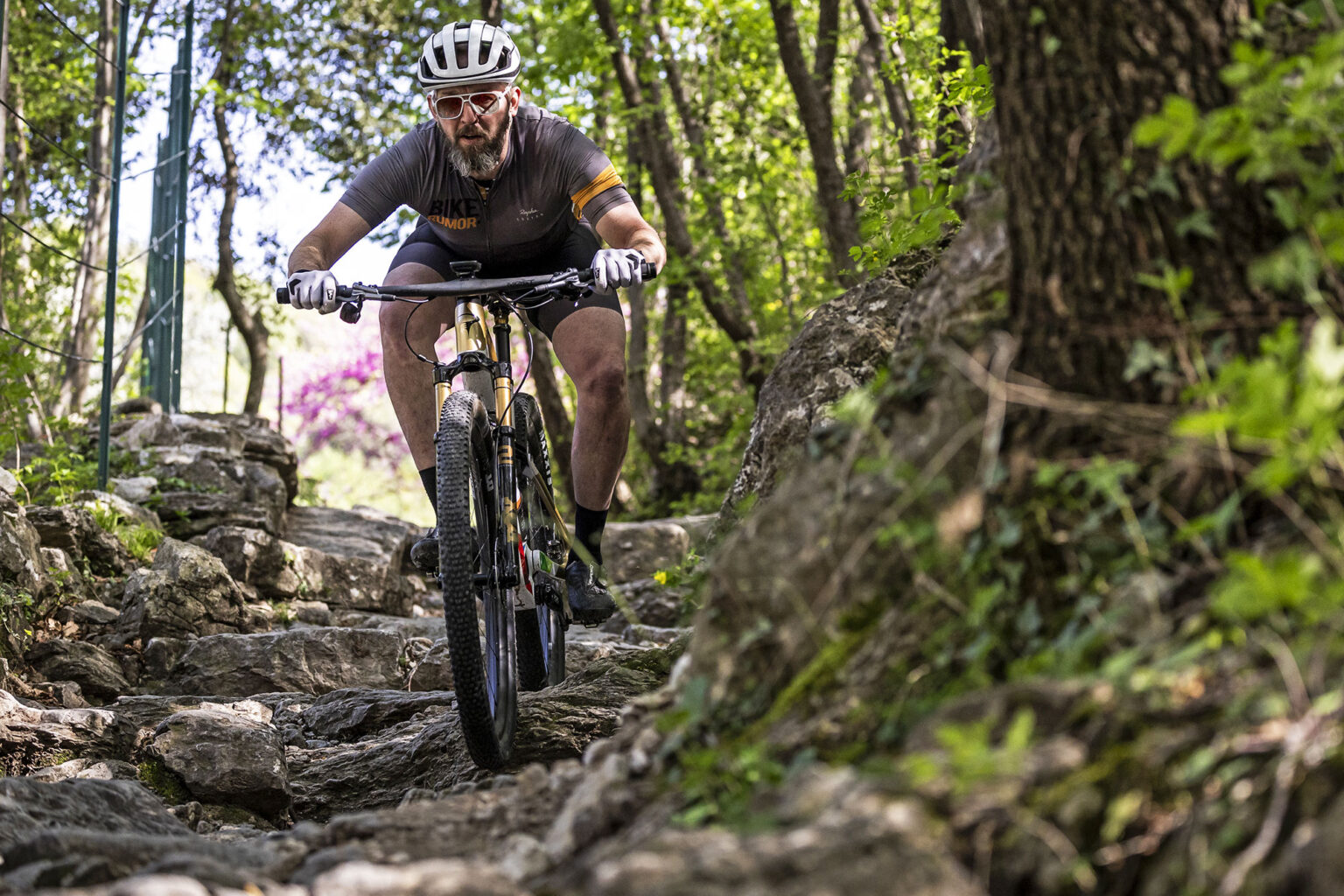
I said I’ll try to be brief.*
Since I really only managed to squeeze in two solid rides on the new Fox 32 Step Cast cross-country fork, mounted to the same all-new Pinarello Dogma XC full-suspension race bike that Tom Pidcock raced to a 2023 XCO World Championship win.
*But readers who recognize my byline might not be so easily convinced. Oops.
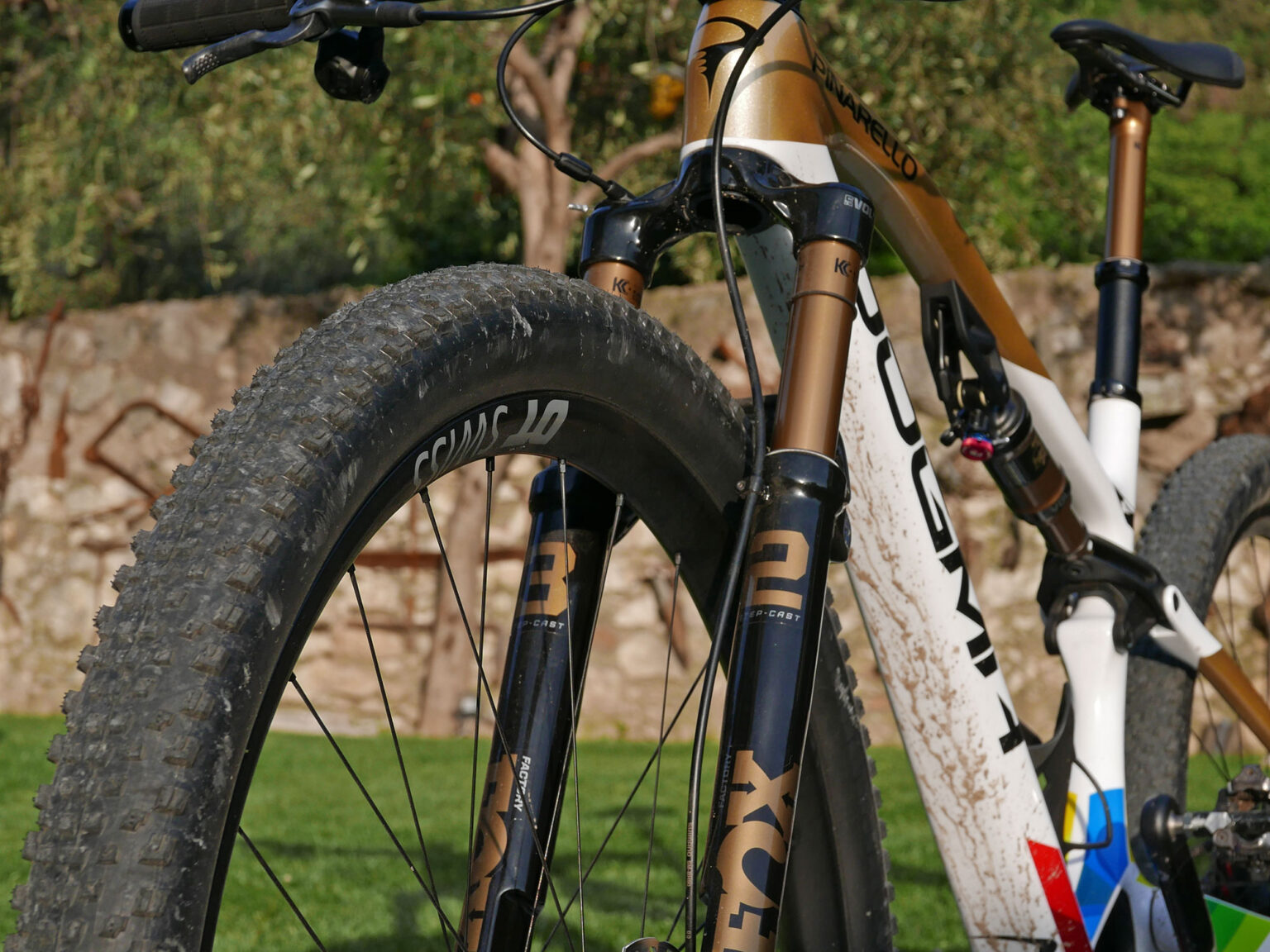

Yet this fork was completely new to me. And new to the entire team at Pinarello. Their INEOS team race on SR Suntour suspension, and literally no one had even thrown a leg over this bike fitted with Fox’s wild new reverse arch XC fork.
So everyone had their fingers crossed. But no one 100% knew what to expect.
And the fork was really good. Essentially right out of the box, with minimal setup and fiddling required.
So, I rode it hard over a wide range of terrain, and have plenty of positive feedback to share.
A brief catch-up on new Fox 32 Step Cast tech
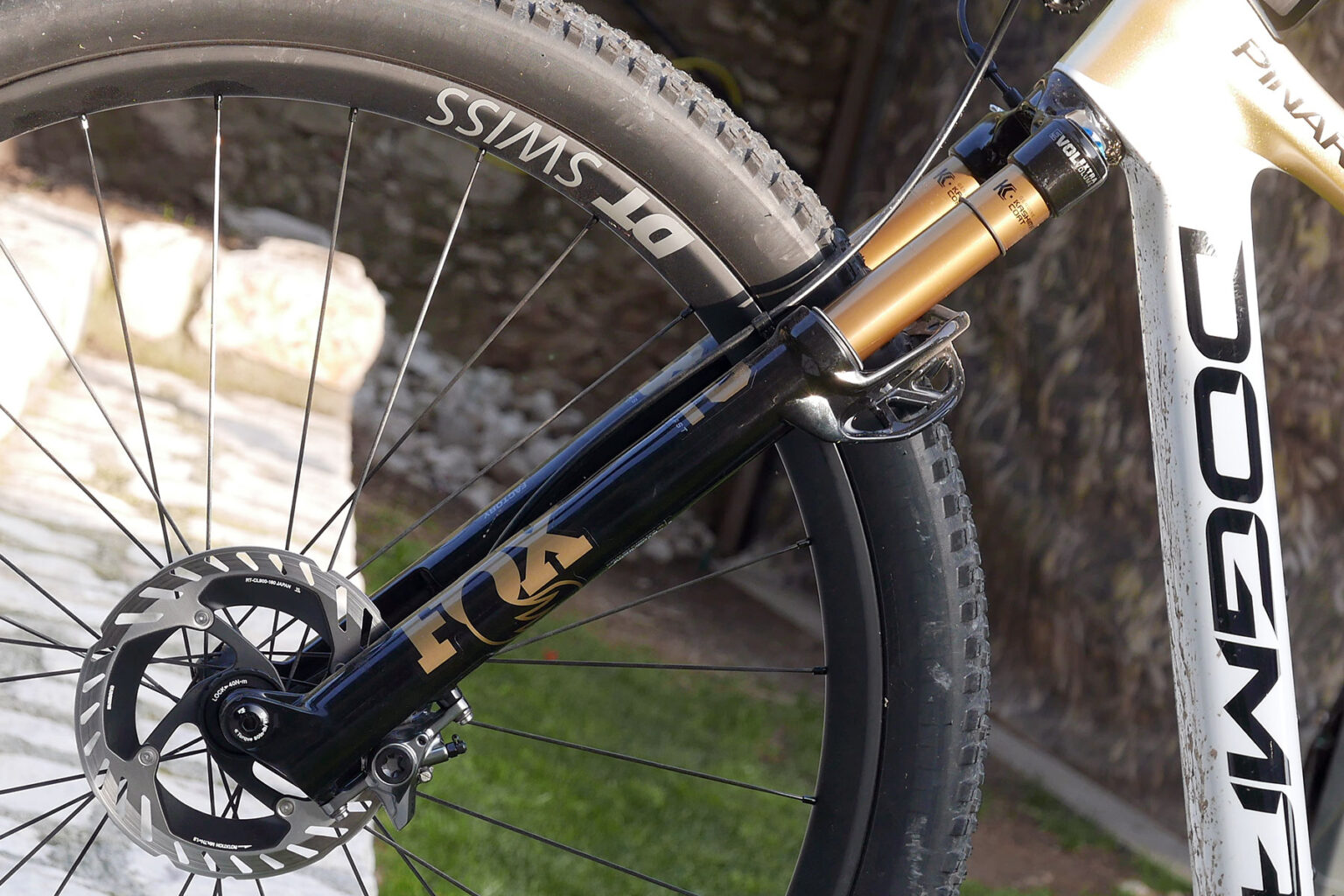

The 2025 Fox 32 Step Cast XC fork just came out last week, unveiled by Fox on the 9th. I rode it on the 11th.
It’s mostly unique in that it replaces the conventional forward-facing fork brace with a reverse arch design. That reverse arch is also composed of an open web said to maximize stiffness with limited material.
The new Fox 32 SC fork is 29er only and limited to 100mm of travel – for XC, marathon, and ultra-distance racing. But it also happens to have shed more than one hundred grams over the previous generation, even when that weight was for the 27.5 version. And at a claimed 1287g now, it has reclaimed the title of lightest XC suspension fork back from the RockShox SID SL.
Into the weeds
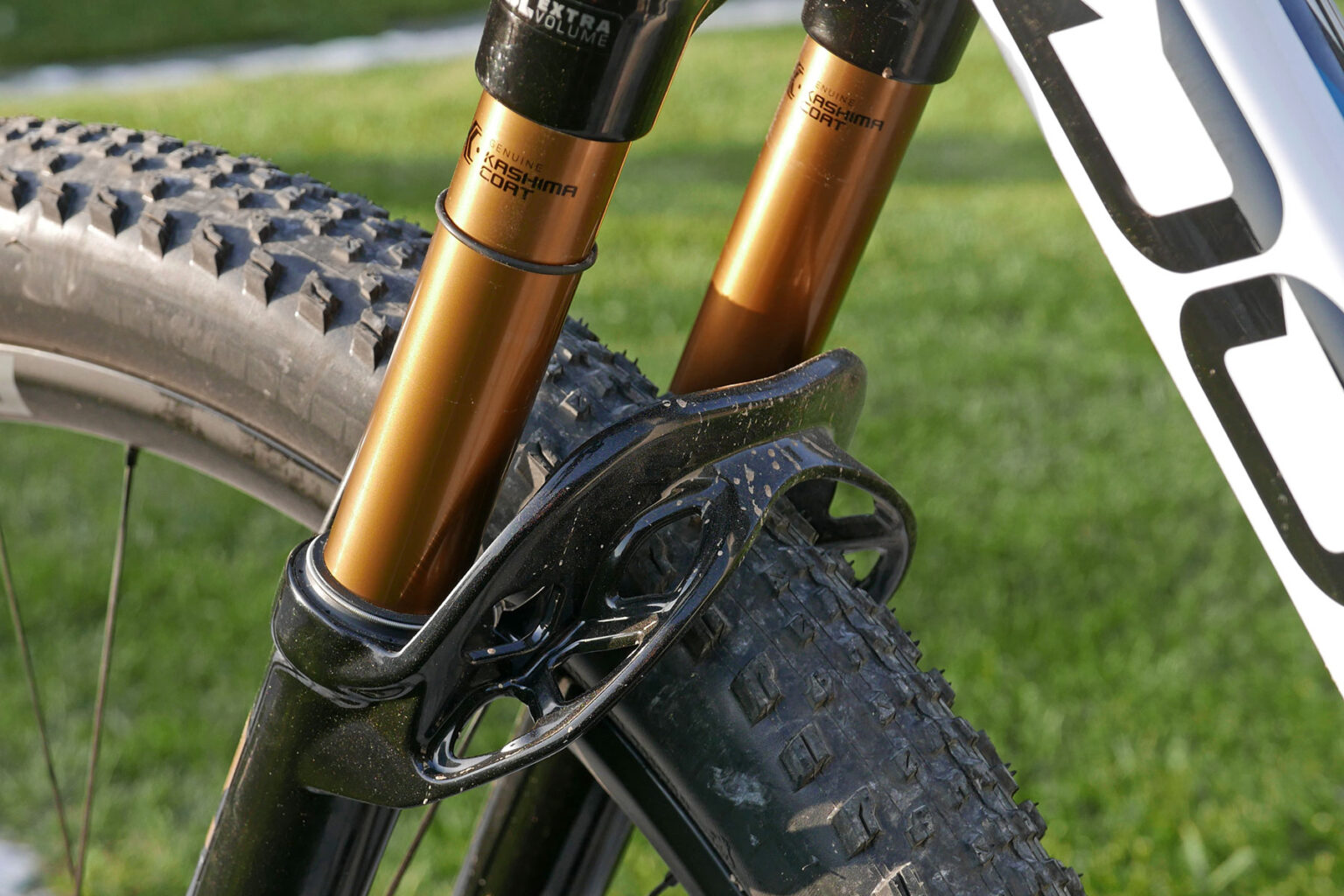

That open reverse arch is all about increasing stiffness – lowering the arch and balancing the axle offset on the opposite side of the lowers. These new cast magnesium lowers are in fact a couple grams heavier, not in fact lighter than the old lowers. But Fox claims they are significantly stiffer compared to the old 32 Step Cast. The overall fork is said increase torsional stiffness by 40%, making it nearly as stiff as the 34 SC.
The fork’s weight savings are mostly hidden inside – the lighter damper, stanchion, steerer tube & Kabolt SL thru-axle are said to save 97g.
Plus, another 9g for the new zero offset crown that reduced cantilevered forces to become stiffer.
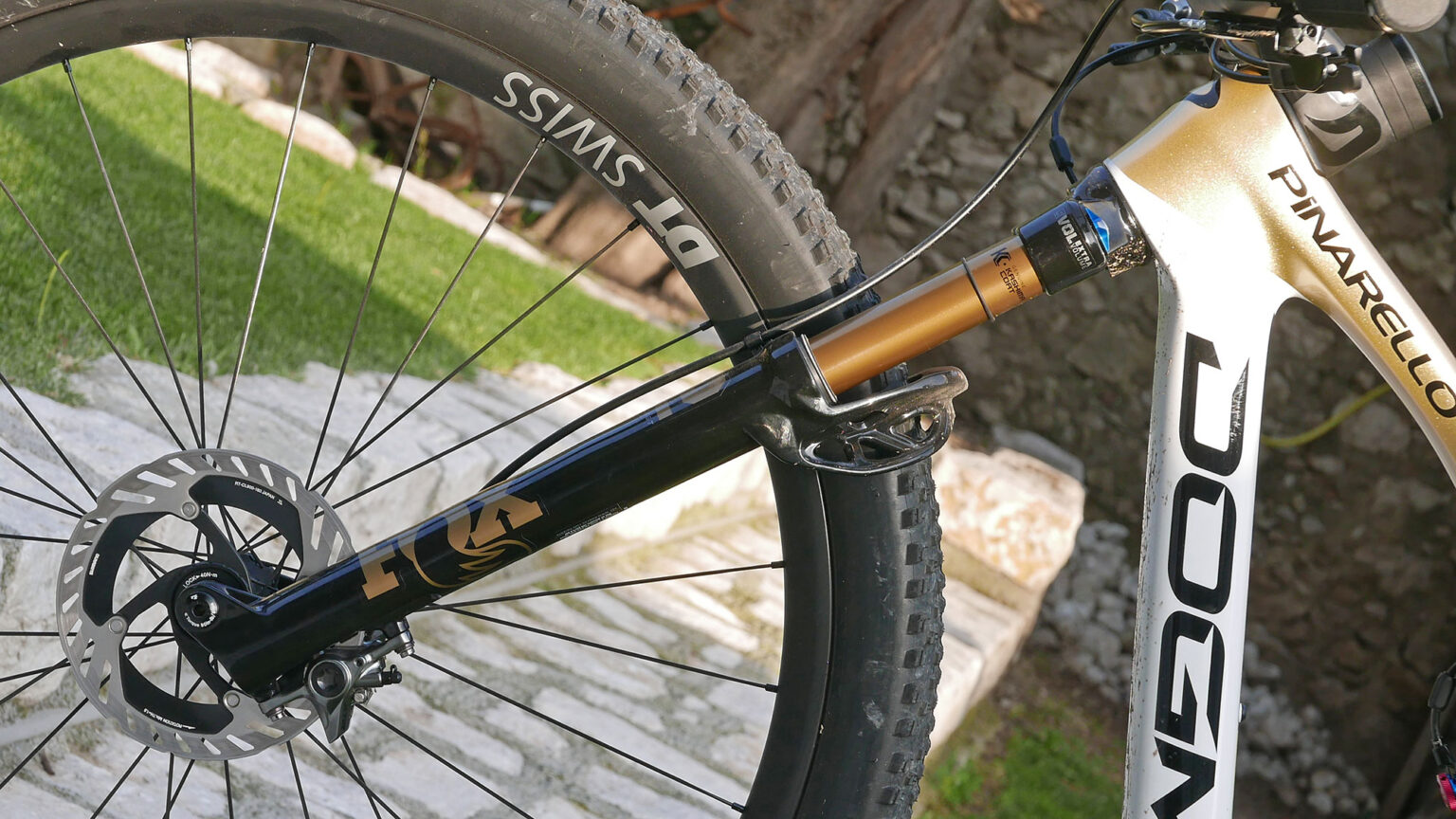

Instead of having the stanchions in line with the headtube angle, this new crown angles or can’t the telescoping elements of the fork more in line with the forces coming in from the axle. It looks a bit odd with no offset at the crown. But means improved stiffness with less weight.
Fox does say this solution is limited to shorter travel fork loads. So even though it seems logical, we don’t expect to see it on many more forks in the short term.
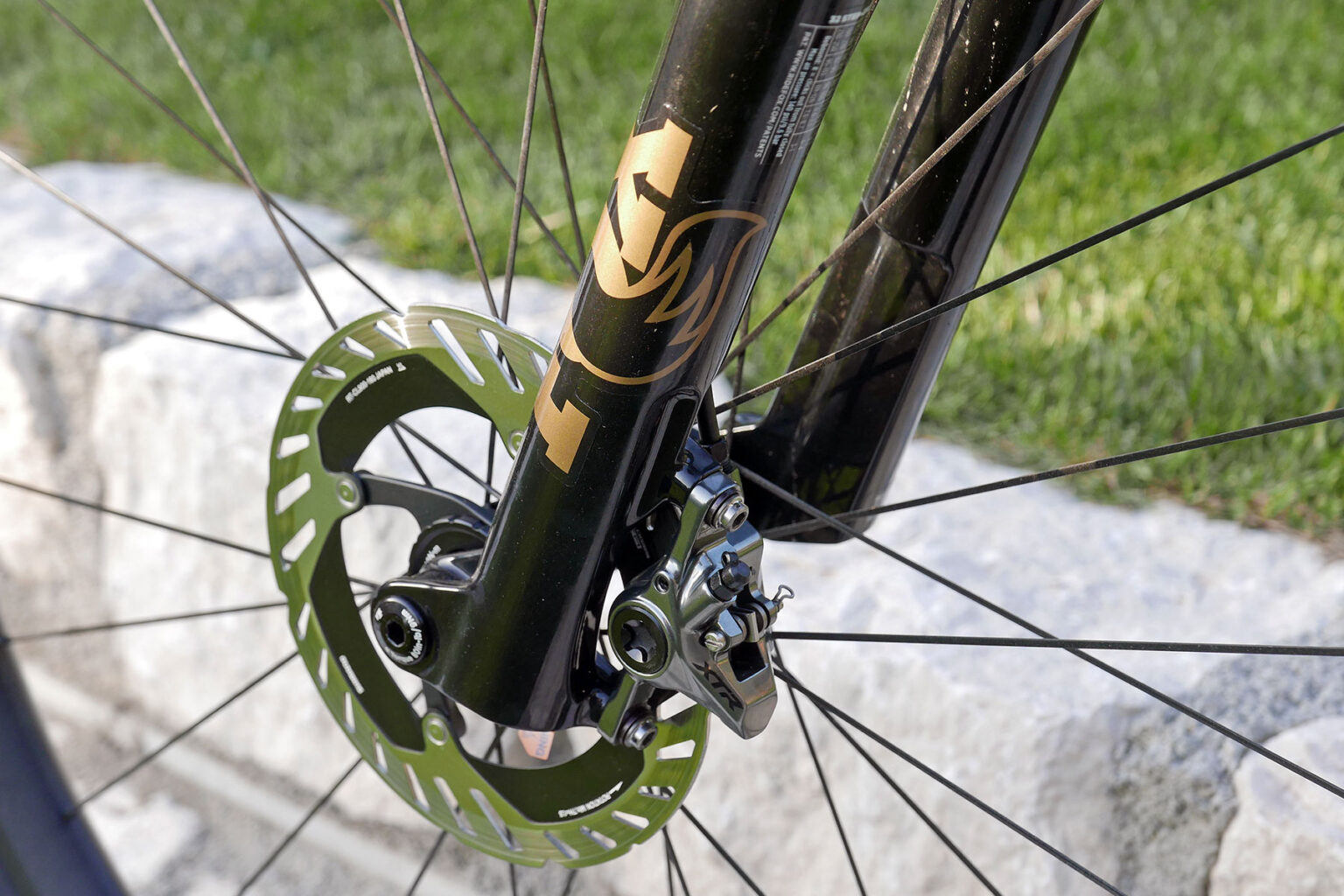

It still uses a Step Cast design towards the axle to save weight. And inside the now double-butted right leg, there’s a new lighter Grip SL damper – with smoother and faster compression adjustment between open, pedal & locked modes. The air spring side sticks with straight internal walls in its stanchion.
Full details on the updated MY25 Fox dampers, here.
My XC Setup
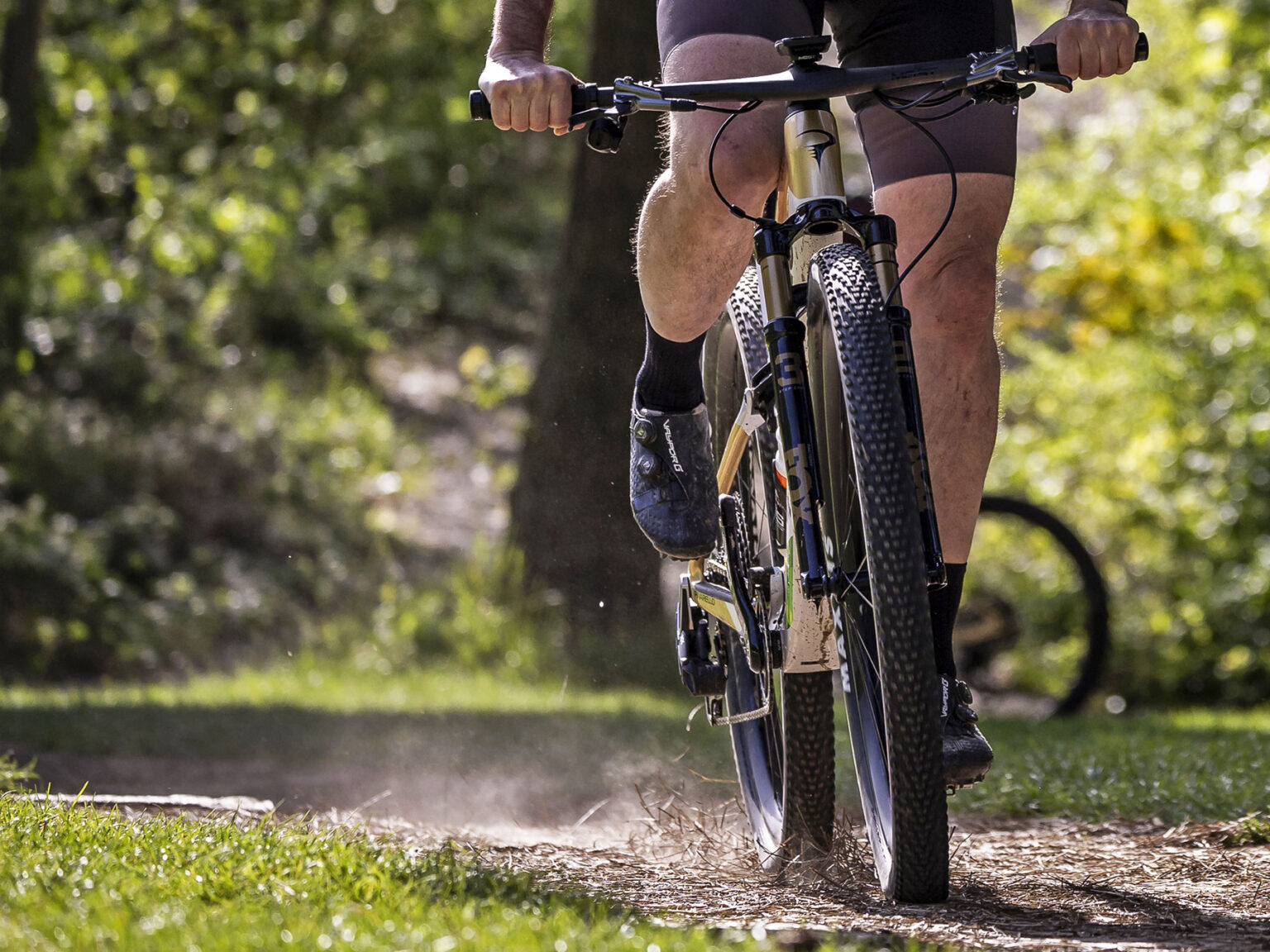

Itching to get out of the trail early the next day, I set my air pressure the night before, pumped up to the low end of the recommended range for my 85kg riding weight (at 95psi). I tried to figure on almost 25% sag, knowing that I had a remote mechanical lockout if I felt the fork was too soft.
That’s quite a bit more sag than the stiff 15-20% that Fox recommends. But I wasn’t going to be racing, so I wanted to be sure to use the travel. And I got that sag while essentially using the pressure recommended on the side of the fork leg.
In fact, the fork felt sufficiently plush for the short 100mm travel. But ramped up to offer plenty of support. Out of the saddle sprinting (like above) didn’t even require locking the fork out.
Climbing – Open, Medium, or Firm lockout modes
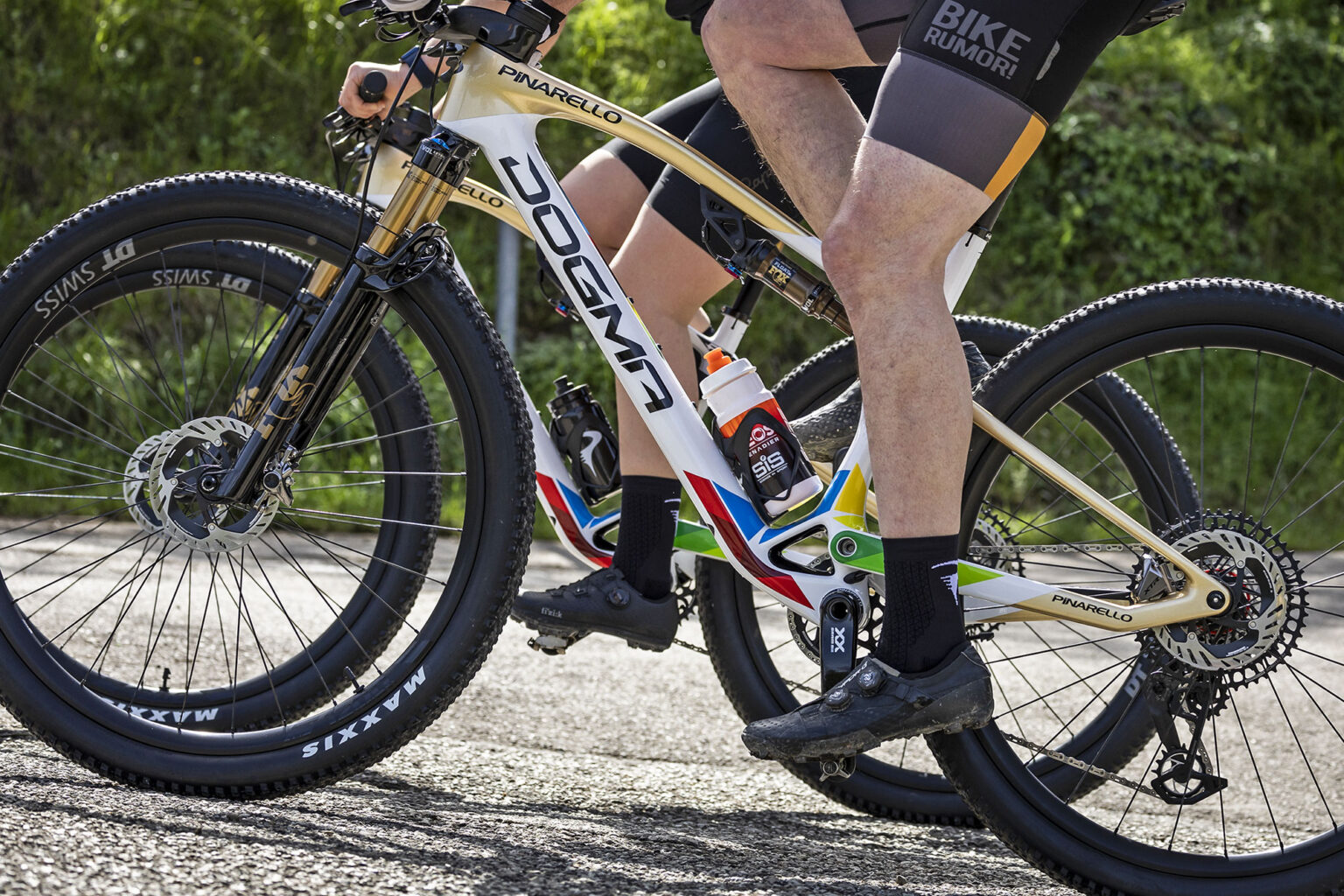

And for the most part, I only went full lock on asphalt climbs. On really steep off-road climbs I did pop it into the middle half-locked Medium mode, which did a good job resisting bobbing as I stair-stepped up some nasty ramps in probably too hard a gear.
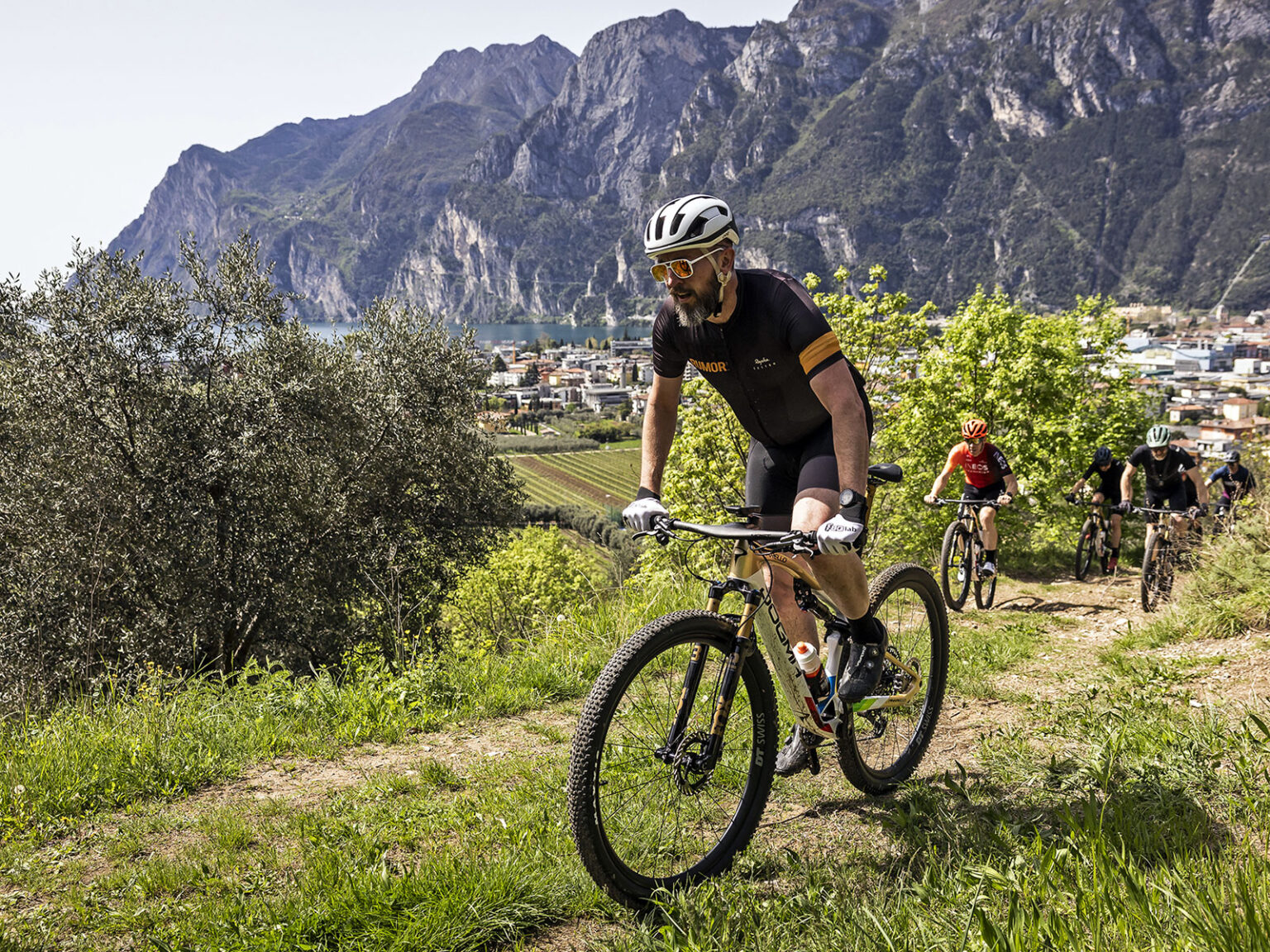

But the top-spec Pinarello Dogma XC felt so light, it wanted to fly up steep climbs. So often I would just stand up and stomp it out instead of downshifting. And the supportive fork in Medium semi-locked compression mode provided a perfect balance with ample stiffness, but still enough movement to keep the tire attached to the ground.
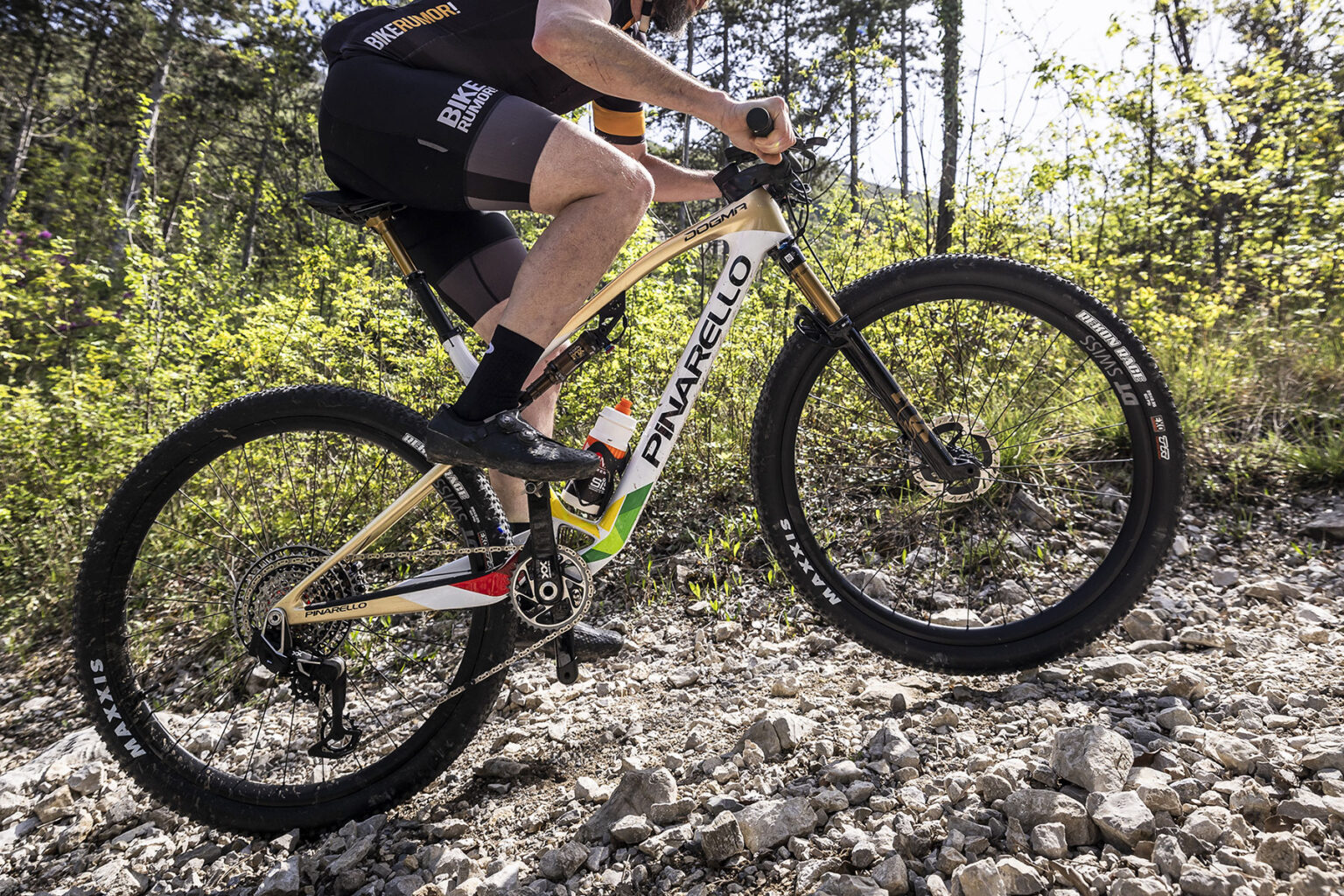

Rebound I kept in the middle of the range, a happy medium of quick but not bouncy return. Enough to keep the front wheel attached to the ground over rough terrain, but not harsh on tougher descents.
And luckily didn’t need to change it, since it requires a fiddly little 2mm hex to adjust.
What does Fox mean that the 32 Step Cast is for Marathon, not World Cup XC?
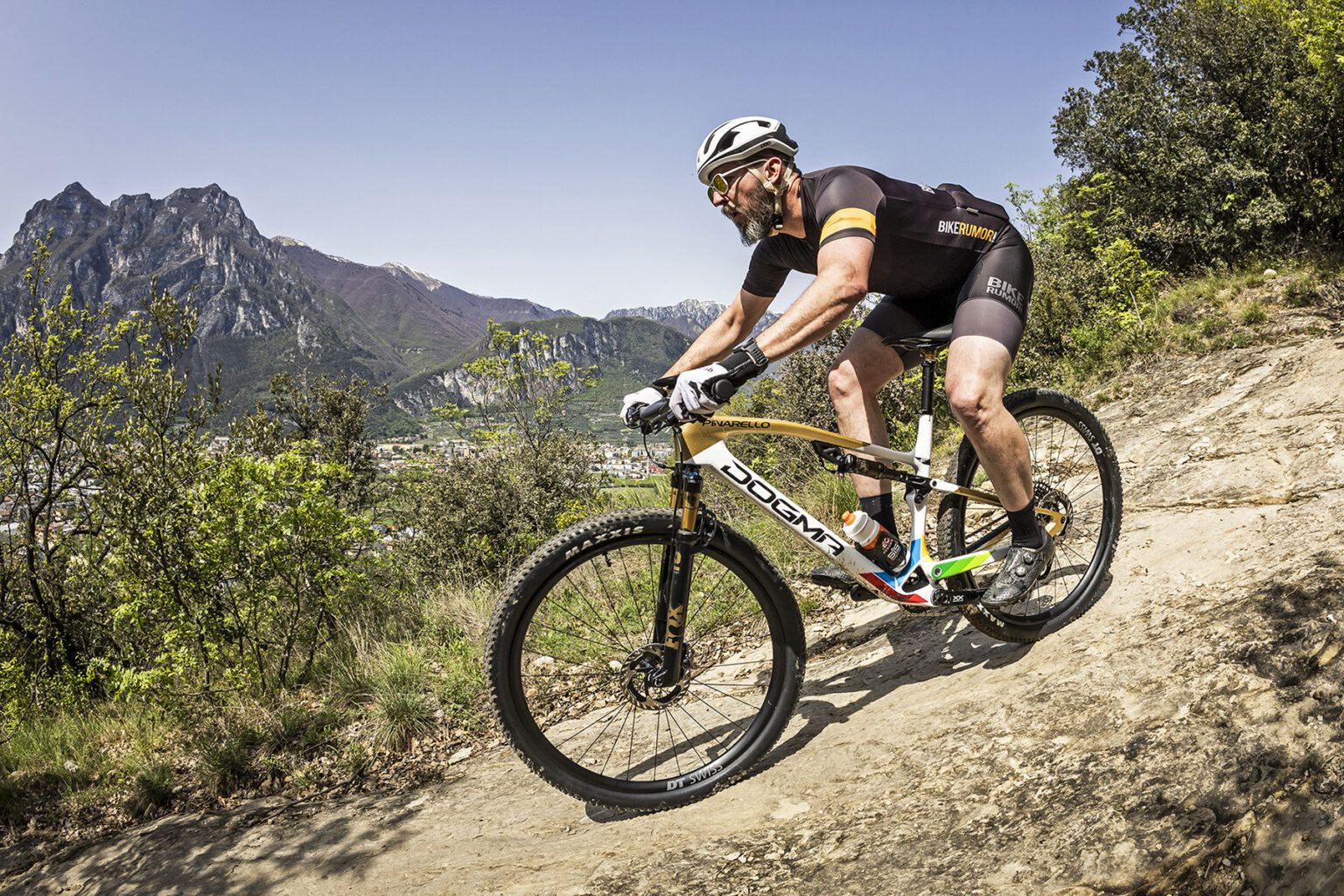

It’s a bit tricky where this new 32 SC gets pigeonholed. Fox describes the new ultralight fork as the “Absolute Lightest in XC. Made for Marathon.“
Sure, a lot of XC racers have moved up to 120mm of travel to tackle the more technical tracks. So 100mm of lightweight travel is maybe not quite enough for the high race-pace speeds of the World Cup XCO circuit. But I’m pretty sure that I’m not attacking climbs and descents anywhere near the likes of Tom Pidcock on this bike.
So, while I love long-travel mountain bikes, 100mm on an XC bike is probably enough for most of us.
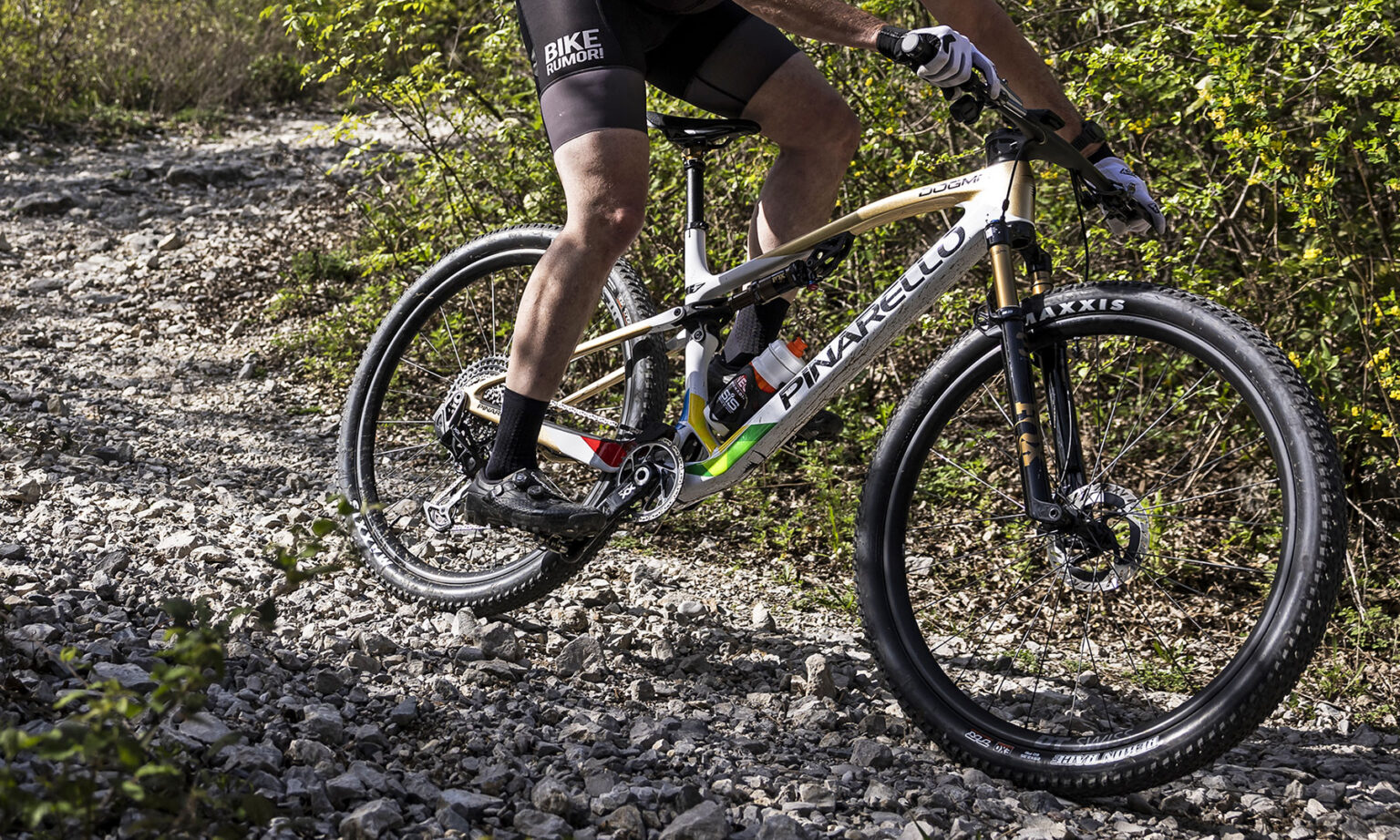

Even blasting down slabs of rock, drifting through gravel-strewn forest roads at probably too high speed, and smashing though rock gardens as fast as I felt comfortable, it was probably lightweight 2.4″ XC tires with tiny tread knobs that felt like my limiting factor.
I never felt lacking of travel or stiffness on my two fast rides. Smashing around technical trails and an XC race training loop just outside of Riva del Garda last week, the new 100mm Fox 32 SC
The 100mm travel Fox 32 SC managed to feel like it was really soaking up the bumps. Without quite edging into a zone I would call plush. It was active, supportive, and shock-absorbing in the best sense.
Plenty capable enough on the downhills for most of us
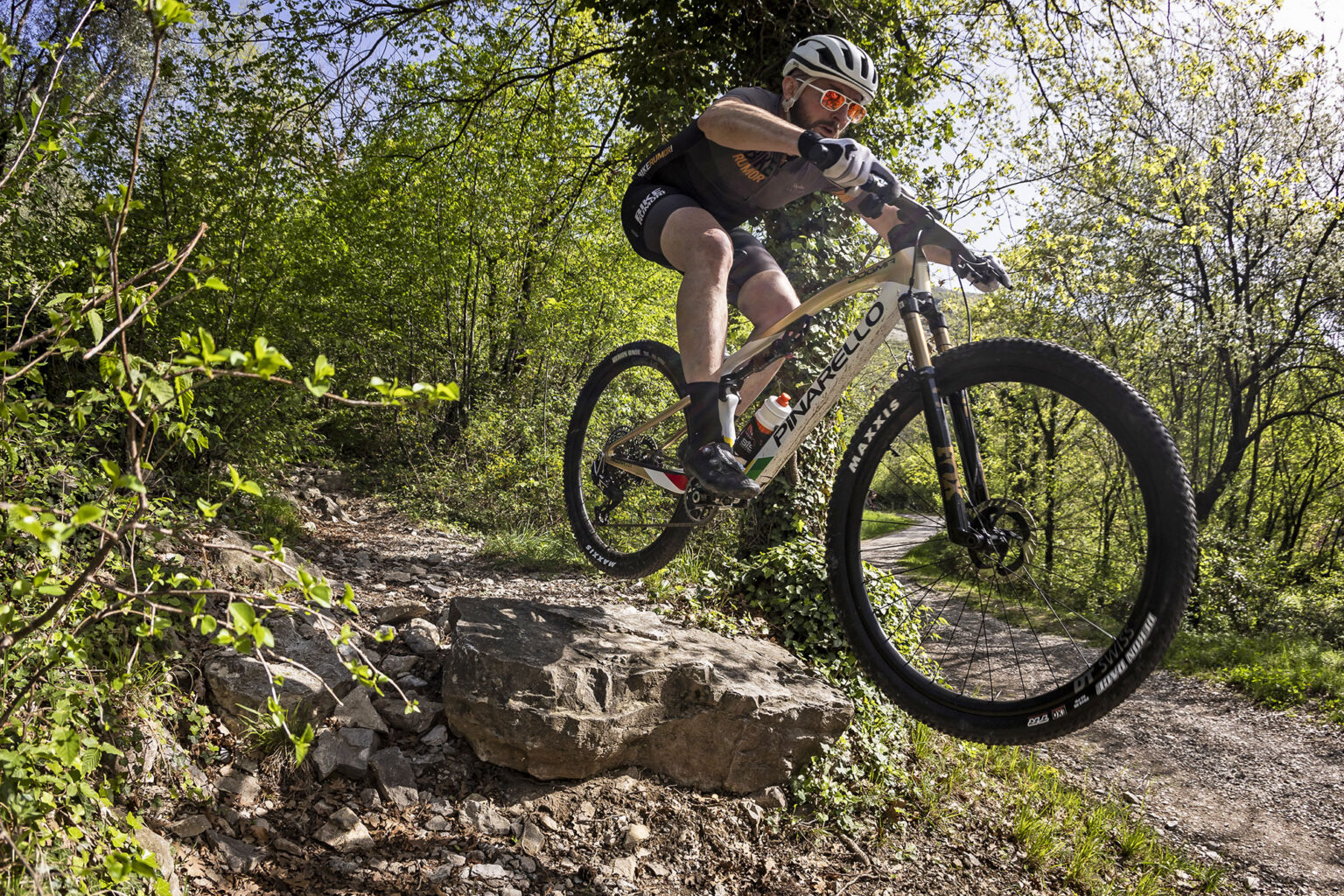

I also didn’t manage to bottom it out, even though I tried pretty hard. Sending the short travel XC bike into rock gardens and off drops wherever I could see a clear-enough landing to be sure that the Recon Race tires would hook up enough for me to keep the rubber side down.
I set the fork up on the soft side. It supported my weight in and out of the saddle over steep terrain up and down. And it was plenty stiff to track wherever I pointed it whether through choppy turns or into rocks and roots.
It really did everything I could ask of a 100mm fork. The fact that it is probably the lightest 100mm for that I’ve ever ridden is just a huge bonus.
So, who is the new Fox 32 SC actually for, after all?
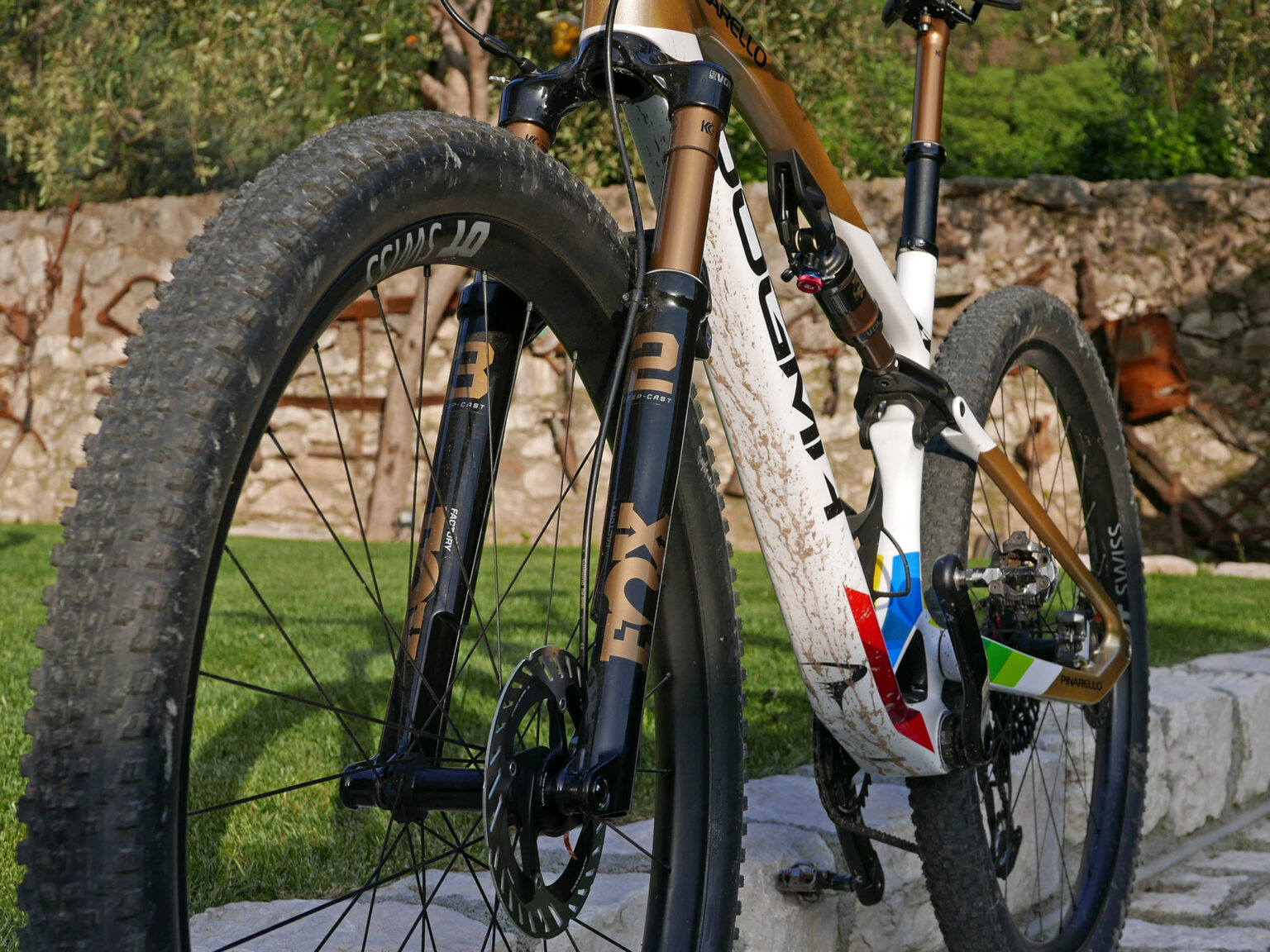

This is a top-tier cross-country race fork, with a long-distance marathon leaning. And it comes with a suitably high cost. So, it’s clearly not fork everyone.
But as the lightest mountain bike fork on the market, the $970 price tag for the new Fox 32 SC Factory seems a lot more reasonable than I would have expected. A SID SL Ultimate with Flight Attendant sells for $1350. More my style of riding at home, a top-tier 36 Factory or Lyrik Ultimate, both sell for $1100. (Not considering Flight Attendant).
Now what bike would I want this new Fox 32 Step Cast on?
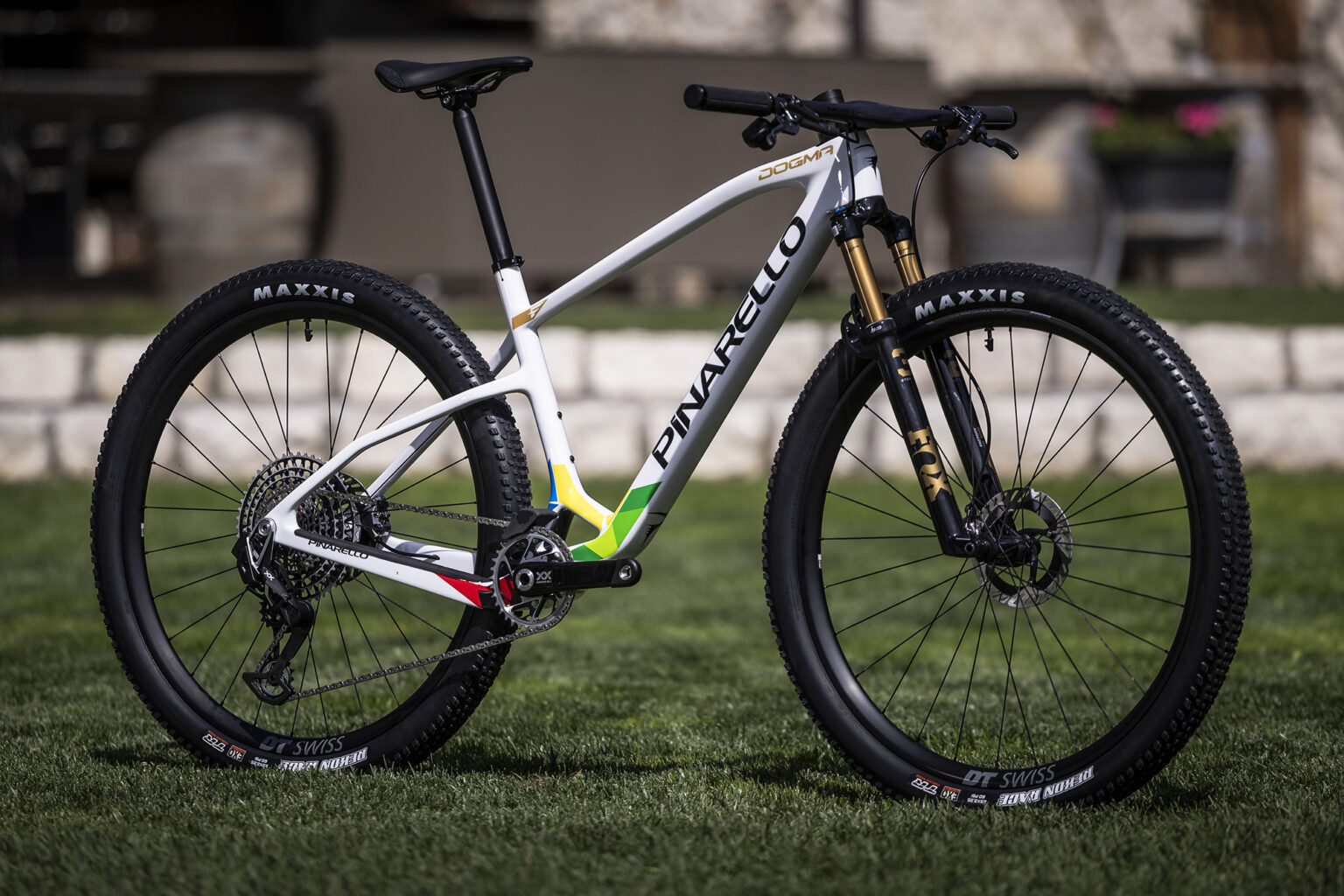

The full-suspension Pinarello Dogma XC that I tested this new fork on was great. It is a UCI XC World Cup and World Championship-winning bike with this amount of travel. So that makes the 120mm travel argument a bit dependent on the rider. I would love that setup if I raced marathon distance XC.
But for how I like to ride, I would love to stick this on an ultralight carbon hardtail. Just like 12x World Champ Pauline Ferrand-Prévot. Try to build up a 9kg race rocket and see how fast I could push it on my local singletrack, forest roads, and maybe some local XCO & XCM racing. Or maybe inch up closer to 10kg with a light hardtail build suitable for off-road adventure racing.
This is a fork that wants to go fast. It’s just up to the rider to put the power into the pedals.